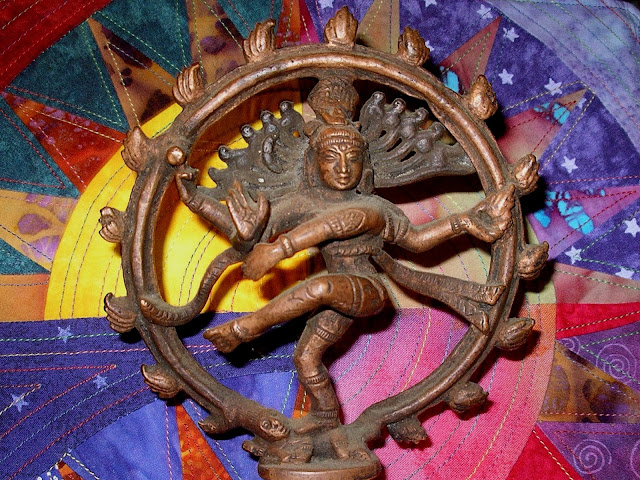Fortunate and wise even as he departs this life
Part 1: A Way Of Life
&
Part 2: The Great Liberation
According to Buddhist scholar and translator Robert Thurman, The Tibetan Book of the Dead, or Bardo Thodol, “organizes the experiences of the between—(Tibetan, bar-do) usually referring to the state between death and rebirth.” While The Book of the Dead has, of course, a long and illustrious history in Tibetan Buddhist life, it also has its place in the history of the West, particularly among 20th century intellectuals and artists. In the 1950s, for example, there was talk among Igor Stravinsky, Martha Graham, and Aldous Huxley to turn the Bardo into a ballet with a Greek chorus. Huxley, who famously spent his final hours on an acid trip, asked that a passage from the book be read to him as he lay dying: “Hey! Noble one, you named Aldous Huxley! Now the time has come for you to seek the way….” this video features poet and troubadour Leonard Cohen narrating a two-part documentary series from 1994 that explores the ancient Tibetan teachings on death and dying. As Cohen tells it "in Tibetan tradition, the time spent in the between supposedly lasts 49 days after a person’s death. During that time, a Buddhist yogi reads the Bardo each day, while the consciousness of the dead person, so it is believed, hovers between one life and another, and can hear the instructions read to him or her." The film gives us an intimate look at this ceremony, performed after the death of a villager—with its intricate rituals and ancient, unbound, hand-printed text of the book—and touches on the tricky political issues of Buddhist practice in largely Chinese-controlled Tibet. The Dalai Lama weighs in with his own views on life and death (at 33:22). Before his appearance, the film provides some brief context of his supposed incarnation from the 13th Dalai Lama and his rise to governance, then exile. The Great Liberation follows an old Buddhist lama and a thirteen-year-old novice monk as they guide another deceased person with the text of the Bardo. Although Cohen has always identified strongly with Judaism—incorporating Jewish themes and texts into his songs and poetry—he found refuge in Zen Buddhism late in life. Two years after this film, he was ordained as a Zen Buddhist monk at age 62, at the Mount Baldy Zen Center east of Los Angeles. His “Dharma name” is Jikan, or “Silent One.”
&
Part 2: The Great Liberation
According to Buddhist scholar and translator Robert Thurman, The Tibetan Book of the Dead, or Bardo Thodol, “organizes the experiences of the between—(Tibetan, bar-do) usually referring to the state between death and rebirth.” While The Book of the Dead has, of course, a long and illustrious history in Tibetan Buddhist life, it also has its place in the history of the West, particularly among 20th century intellectuals and artists. In the 1950s, for example, there was talk among Igor Stravinsky, Martha Graham, and Aldous Huxley to turn the Bardo into a ballet with a Greek chorus. Huxley, who famously spent his final hours on an acid trip, asked that a passage from the book be read to him as he lay dying: “Hey! Noble one, you named Aldous Huxley! Now the time has come for you to seek the way….” this video features poet and troubadour Leonard Cohen narrating a two-part documentary series from 1994 that explores the ancient Tibetan teachings on death and dying. As Cohen tells it "in Tibetan tradition, the time spent in the between supposedly lasts 49 days after a person’s death. During that time, a Buddhist yogi reads the Bardo each day, while the consciousness of the dead person, so it is believed, hovers between one life and another, and can hear the instructions read to him or her." The film gives us an intimate look at this ceremony, performed after the death of a villager—with its intricate rituals and ancient, unbound, hand-printed text of the book—and touches on the tricky political issues of Buddhist practice in largely Chinese-controlled Tibet. The Dalai Lama weighs in with his own views on life and death (at 33:22). Before his appearance, the film provides some brief context of his supposed incarnation from the 13th Dalai Lama and his rise to governance, then exile. The Great Liberation follows an old Buddhist lama and a thirteen-year-old novice monk as they guide another deceased person with the text of the Bardo. Although Cohen has always identified strongly with Judaism—incorporating Jewish themes and texts into his songs and poetry—he found refuge in Zen Buddhism late in life. Two years after this film, he was ordained as a Zen Buddhist monk at age 62, at the Mount Baldy Zen Center east of Los Angeles. His “Dharma name” is Jikan, or “Silent One.”
~*~
~*~

2 comments:
Vale beautiful poet, fly free
Thanks for this - I was not aware of the film.
I just watched the video online of his interviews last week about his new release you want it darker - He spoke about writing.
He said "the fact that it takes so long to write my songs is no guarantee of their excellence"
He said
"i made great pains to simplify my environment because my mind is cluttered"
Right to the end - he held me.
xo
Post a Comment